The main part of each cabinet is the shelves, thanks to which compact storage of various items is organized. Long and high-quality service life directly depends on the reliability and correctness of the shelf fastening.
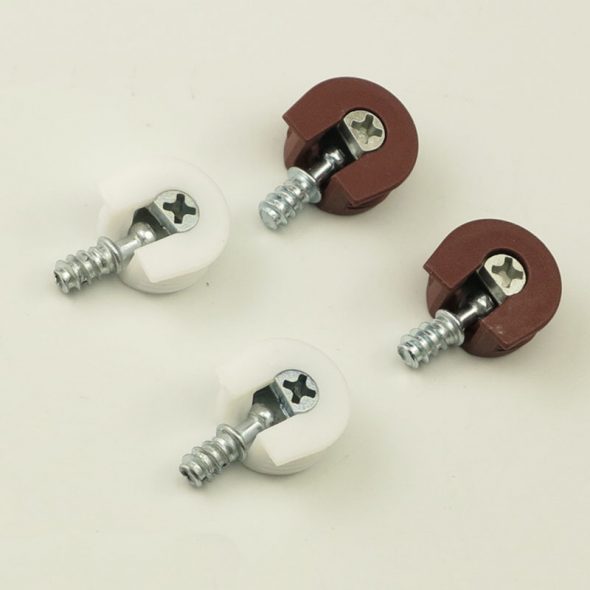
It is not difficult to fix hanging shelves in a cabinet, you just need to mark them, observing horizontal levels. Otherwise, the weight will be unevenly distributed over the surface of the shelf, and the load on one fastening will be much greater than on the other. In the future, it will break, and the shelf will fall, there is a possibility that the wall of the cabinet will eventually be seriously damaged.

Content
Types of cabinet shelf fastenings
The simplest option is self-tapping screws. They come with countersunk heads and press washers.
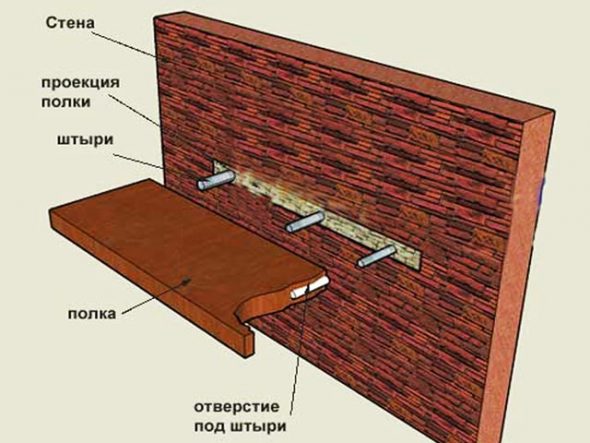
Screws have a two-digit marking: the first number indicates the thread diameter, the second - the total length. The higher the values of these parameters, the greater the load on the screw can be.
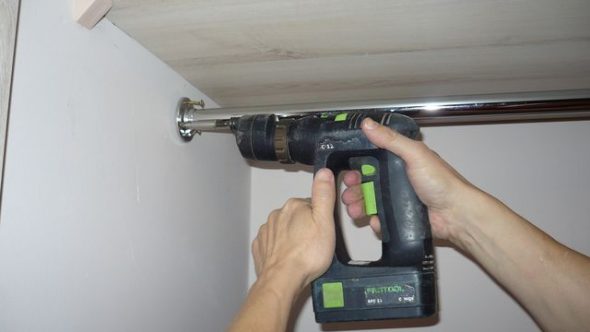
A screwdriver or a power drill is used for installation. To avoid cracks on the product, a drill with a smaller thread diameter should be used to make mounting holes.
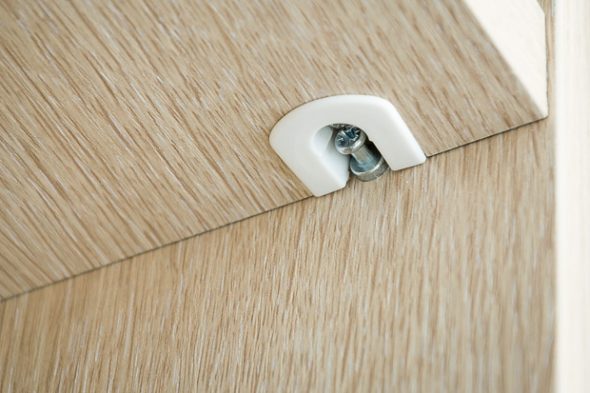
Advantages of fixing shelves with screws:
- ease of use;
- low cost.
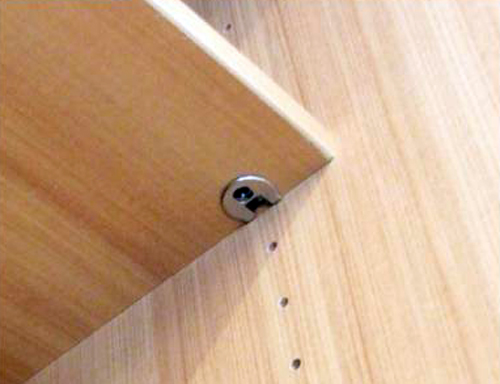
Flaws:
- the head of the screw is visible (it can be masked with special plugs);
- low permissible load;
- After several assembly-disassembly cycles, the fixing properties will be lost.
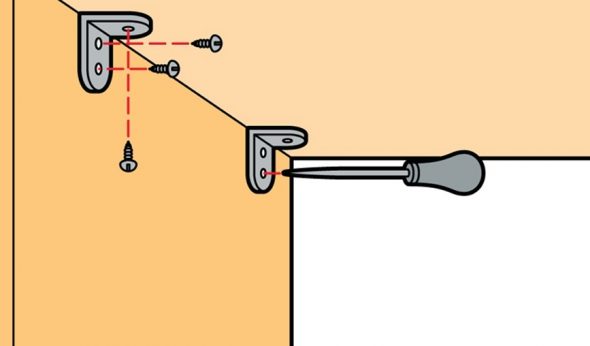
Euro screws, or so-called confirmats, differ from simple screws in that they are thicker, have a larger thread pitch, a cylindrical head and a blunt end.
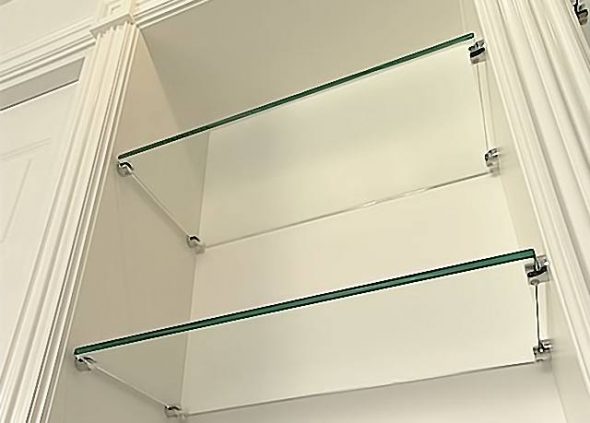
The most popular are Euro screws of 50 and 75 mm sizes. The first type is good for working with 16 mm thick chipboard. The second is advisable to use for 26 mm chipboard.
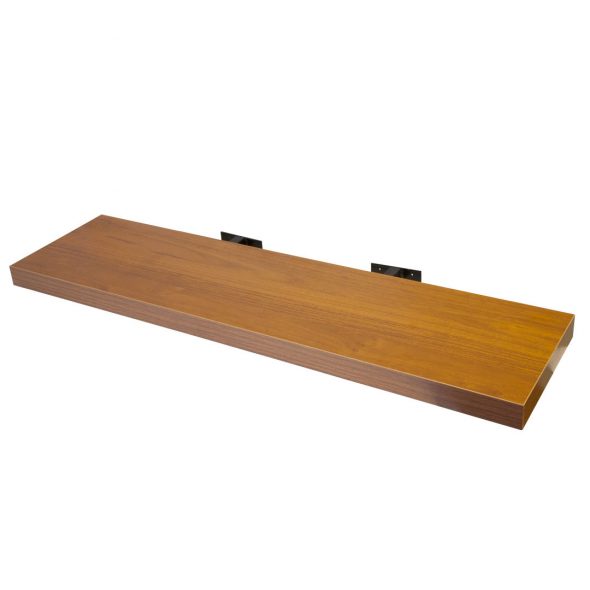
To install the shelves, use a hex key, a confirmat drill, or two regular drills with a diameter of 5 millimeters for the thread and 7 for the head. Using a special drill, you can simultaneously drill both elements for the screw thread and the head.
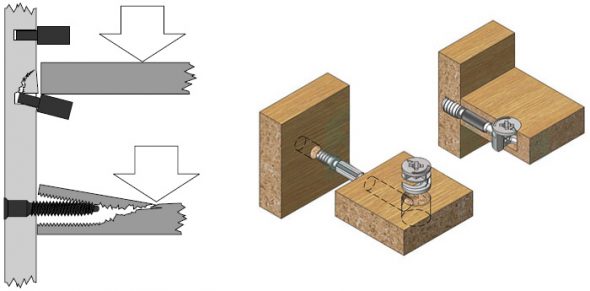
Advantages of fastening with Euro screws:
- it is possible to tighten the parts;
- strong fixation;
- look more aesthetically pleasing than self-tapping screws.
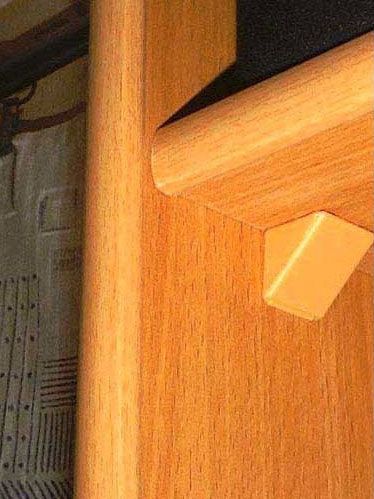
Flaws:
- the cap is visible on the surface (easily hidden with plugs),
- as with simple screws, instability during assembly and disassembly.
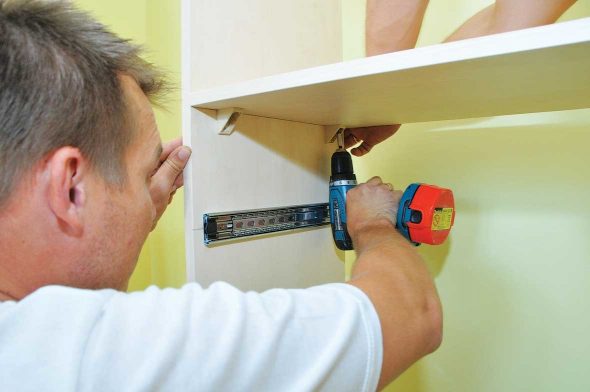
It is more practical to use furniture dowels in combination with tightening elements: two dowels and a Euro screw have a more aesthetic appearance than two Euro screws, and the reliability of the fastening will be much higher.
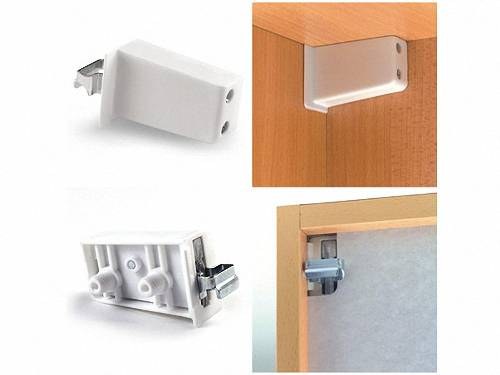
An eccentric clamp, or so-called mini-fix, which consists of a rod, a bushing and an eccentric. There are models without bushings - then the rod is screwed into the part, but such fixation is less resistant to repeated assembly and disassembly.
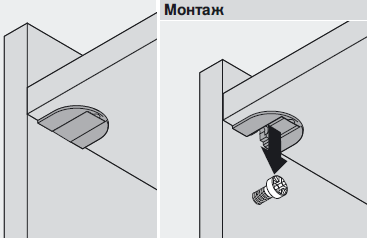
The eccentric can be located in a metal or plastic decorative casing. You can choose a color that suits your furniture. It has a very original appearance, and there is no need to hide it.
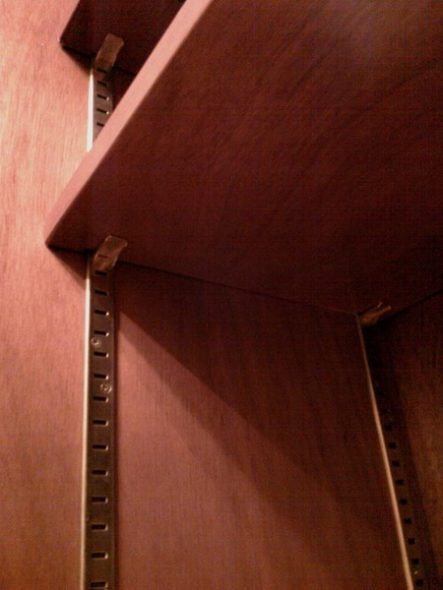
To install the joint using mini-fixes, you will need a 5mm drill with a stop and a 20mm Forstner cutter.
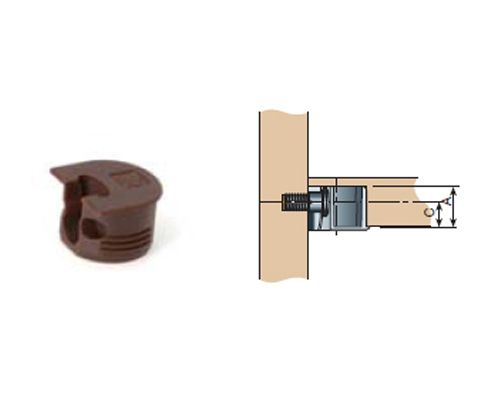
Advantages:
- invisible from the outside of the furniture;
- there is no need to hide it inside the product;
- you can pull the parts together;
- accessible connection formation;
- ease of fixing shelves;
- Multiple assembly and disassembly is not prohibited.
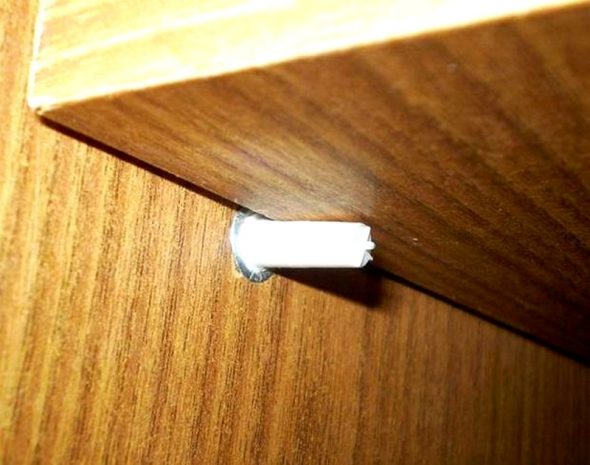
Flaws:
- relatively high cost;
- availability of a special tool;
- the fastening force is lower than that of Euro screws.
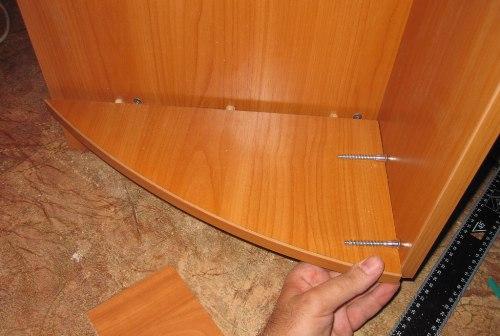
Corner coupling, despite a number of advantages, is practically not used in modern furniture models, since it is large in size and has an unaesthetic appearance.
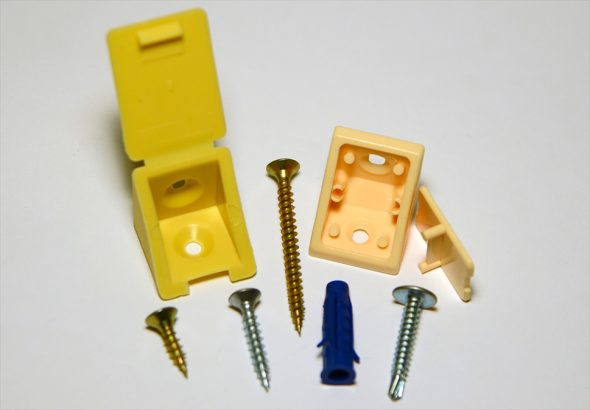
This type of fastening includes the coupler itself, two bushings and two countersunk head bolts. For installation you will need: a drill, a hex key, a screwdriver for tightening metal bushings or a hammer for plastic ones, which need to be driven in.
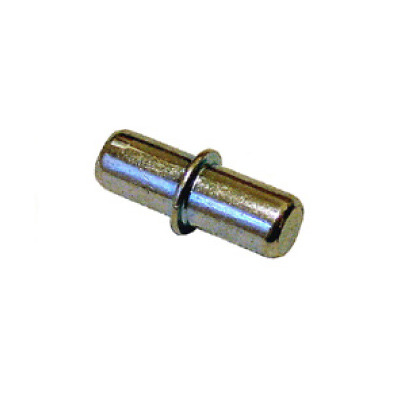
Advantages:
- the connection has high strength;
- basic hole marking;
- ease of installation;
- can be assembled and disassembled many times;
- invisible from the outside of the product;
- there is a possibility of tightening the parts.
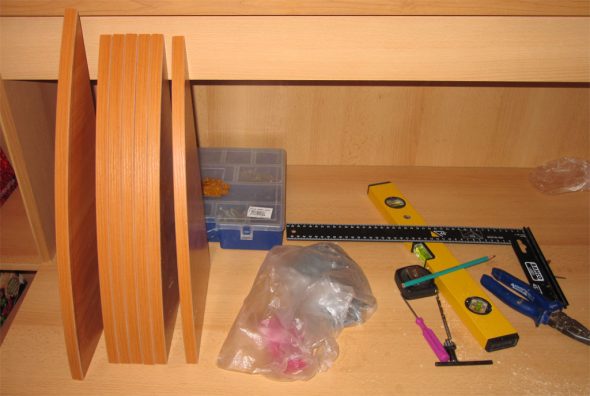
Flaws:
- large sizes;
- unaesthetic appearance;
- may interfere with the installation of other elements.
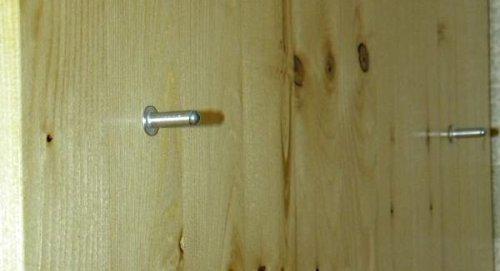
Selecting fittings for mounting shelves
Shelves in bookcases and linen closets are mostly made of chipboard, but kitchen units may use metal or glass. Therefore, when choosing fittings for shelves, you should consider the material they are made of and the desired method of fastening.
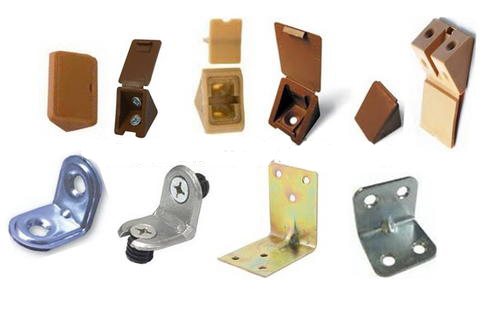
For shelves that will not be subject to heavy loads, any type of fittings can be used.
Glass shelves should be mounted only on special overhead holders. Inside them there is a rubber gasket that prevents deformations on the fragile glass surface. If the shelves will be subject to heavy loads, it is better to use bracket holders.
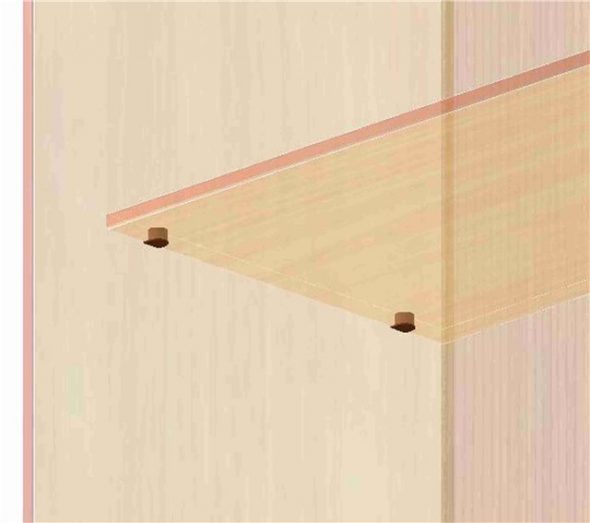
Currently, the market offers a huge selection of various models of fasteners, retractable and rotating mechanisms that are easy to install yourself. Choose only high-quality fittings - they will serve you faithfully for many years.
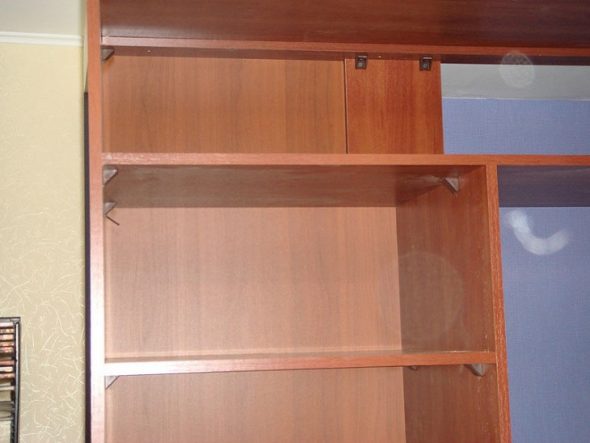

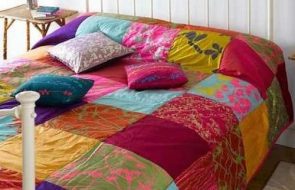
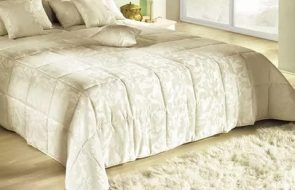
I buy panels in the same color, cut them in the store (for free) to the size between the shelves, glue them on the sides and put the shelves - the downsides are the price and the narrowing of the shelves, otherwise the advantages